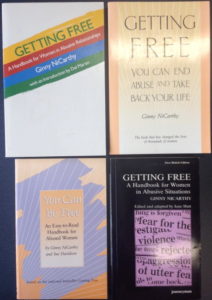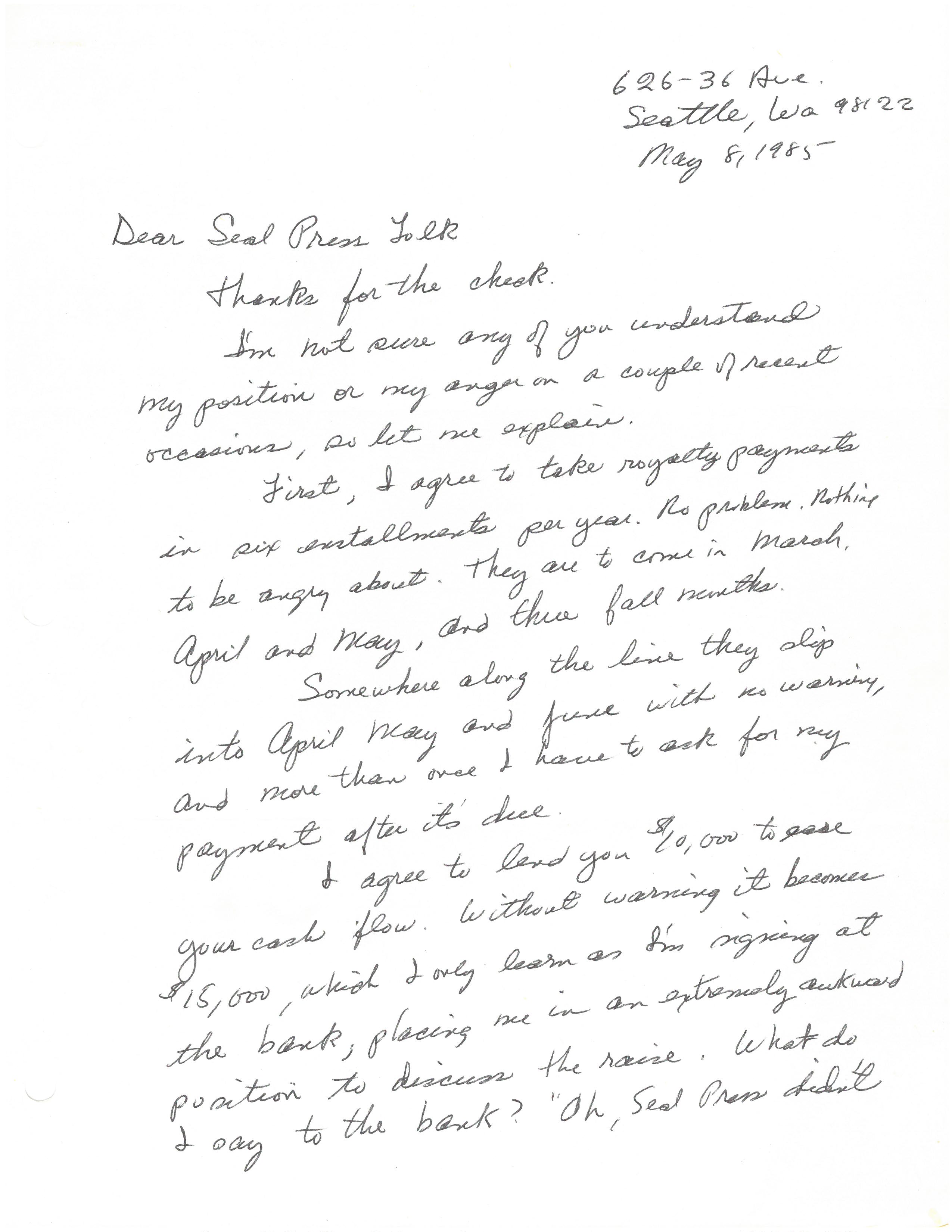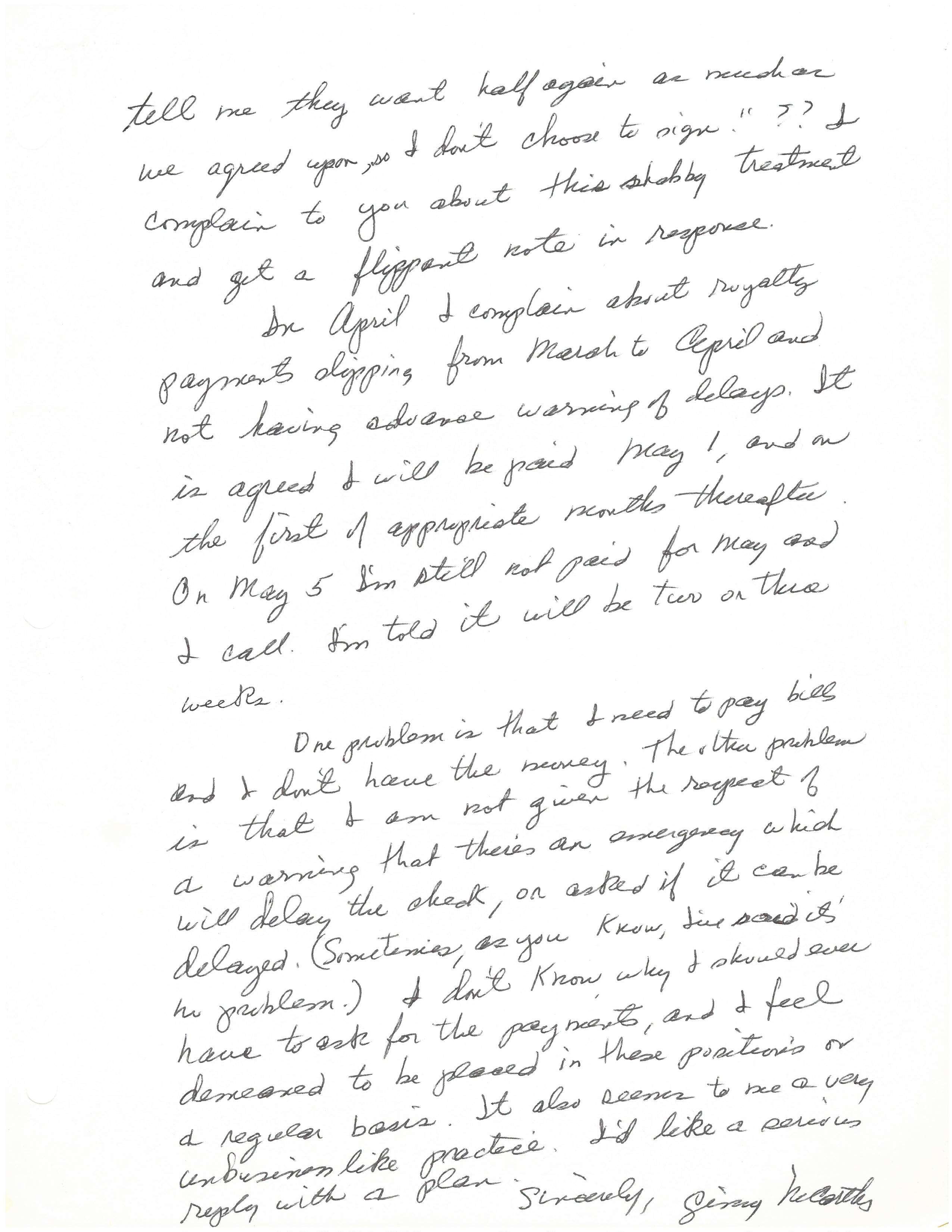|
|
Transcription: Seattle, Wa May 8, 1985 Dear Seal Press Folk
Thanks for the check. I’m not sure any of you understand my position or my anger on a couple of recent occasions, so let me explain. First, I agree to take royalty payments in six installments per year. No problem. Nothing to be angry about. They are to come in March, April and May, and three fall months.  Somewhere along the line they slip into April May and June with no warning, and more than once I have to ask for my payment after it’s due. I agree to lend you $10,000 to ease your cash flow. Without warning it becomes $15,000, which I only learn as I’m signing at the bank, placing me in an extremely awkward position to discuss the raise. What do I say to the bank? “Oh, Seal Press didn’t tell me they want half again as much as we agreed upon so I don’t choose to sign.” ?? I complain to you about this shabby treatment and get a flippant note in response. In April I complain about royalty payments slipping from March to April and not having advance warning of delays. It is agreed I will be paid May 1, and on the first of appropriate months thereafter. On May 5 I’m still not paid for May and I call. I’m told it will be two or three weeks [weeks is whited out and rewritten]. One problem is that I need to pay bills and I don’t have the money. The other problem is that I am not given the respect of a warning that there’s an emergency which will delay the check, or asked if it can be delayed. (Sometimes, as you know, I’ve said it’s no problem.) I don’t know why I should even have to ask for the payments, and I feel demeaned to be placed in these positions on a regular basis. It also seems to be a very unbusinesslike practice. I’d like a serious reply with a plan. Sincerely, Ginny NiCarthy[1] Transcribed by Christina Ruggiero-Corliss |
[1] “Ni” is an Irish name for a daughter, adopted by some Second Wave feminists.

